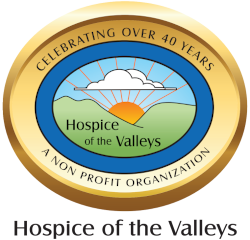6 Signs of Caregiver Burnout
When we were all babies, our parents devoted themselves to taking care of us. But at some point later in life, that role often reverses, with children taking care of aging or sick parents. Just as parents of small children often feel overwhelmed and say that they need a break, caring for an older relative is usually no easier.
And yet, we often have trouble recognizing or admitting that we suffer from caregiver burnout. That’s probably due, at least in part, to the fact that society often focuses on parenting dilemmas, while ignoring the needs of those caring for elderly relatives. If you’re playing the role of caregiver for a parent or other relative, take a few moments to assess your own mental and emotional health. Have you noticed any of these signs of caregiver burnout?
You feel anxious or stressed. You worry frequently, you’re losing sleep, you feel as though you’re doing too much all at once, or you’re even experiencing outbursts of anger.
You’re exhausted. You’re tired all the time, and you might be getting sick more often, too.
Your mood has changed. You feel irritable, cranky, sad, lonely, or out of control.
You’re depressed. You feel sad, “for no reason”, or you don’t experience joy anymore. You rarely laugh or feel happy. You feel as though you just go through the motions every day, and life has no meaning.
You feel out of touch. You don’t engage in activities you used to enjoy, and you aren’t sure of the last time you spoke to a friend or attended a social gathering.
You’ve lost or gained more than ten pounds. A small amount of weight fluctuation is normal for all of us. A gain or loss of more than ten pounds can be a sign of an emotional or health crisis.
Caregiver burnout happens when you’ve been so busy tending to the needs of someone else, that your own needs have been overlooked or forgotten. For some reason, many people feel guilty to admit that they are suffering caregiver burnout. But remember, you’re human too; you have needs, and it’s okay to ask for help.
In fact, seeking help is the best thing you can do for not only yourself, but also the person for whom you are providing care! After all, if you push yourself beyond reasonable limits, you could get very sick yourself. Caring for yourself helps you to stay healthy, so that you can continue to oversee the care of your loved one.
If you’re experiencing caregiver burnout, don’t be afraid to ask for help. In future articles, we’ll discuss how to get the help you need, so that you can keep yourself and your loved one healthy and happy.
As a trusted member of the community, Hospice of the Valleys has been providing hospice care to the Inland Valley and Fallbrook for over 34 years. Please call us for senior community resources, or for information about hospice care. We’re here to help. 951-200-7800





